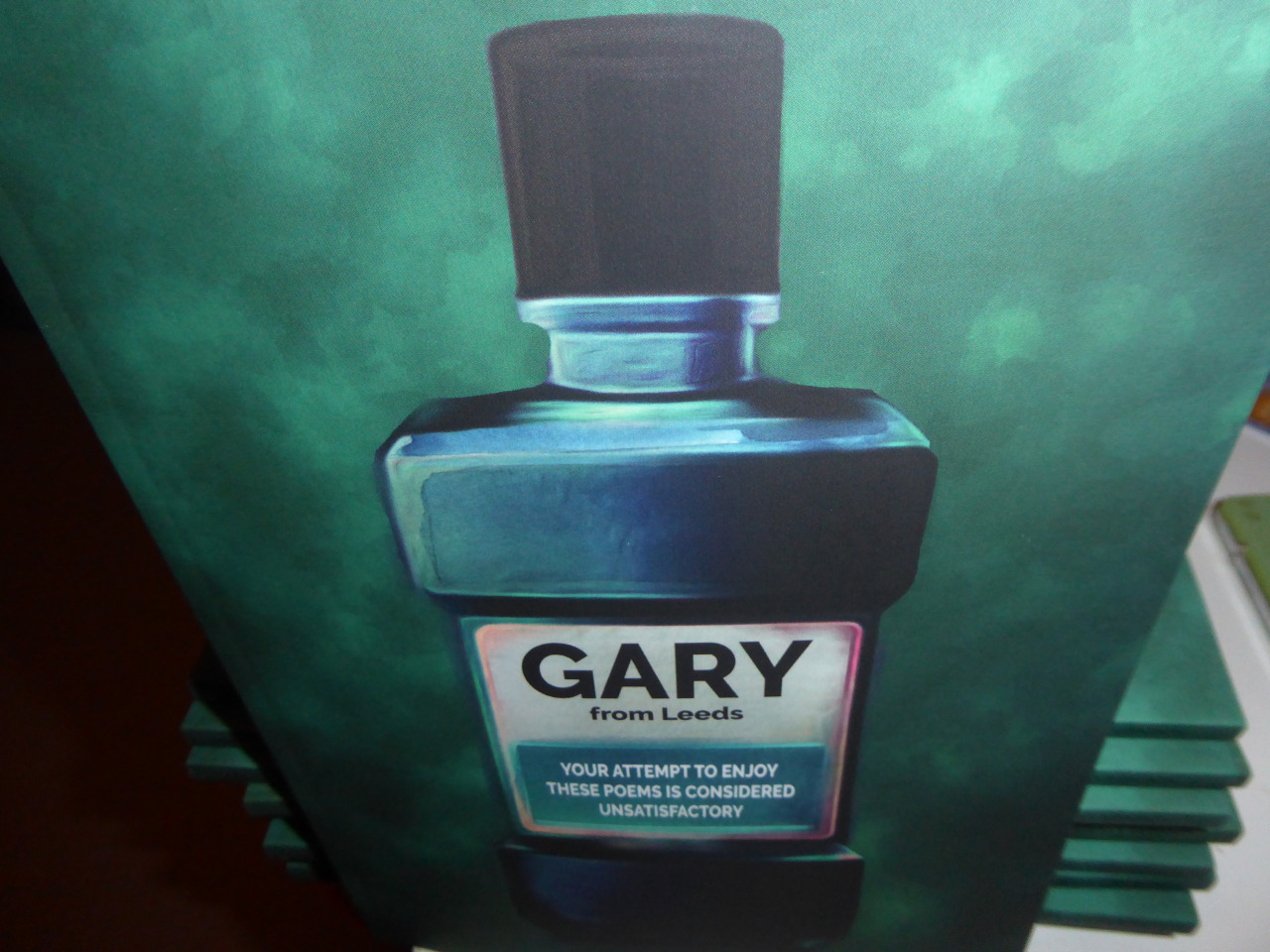PRAY, PRAY, PRAY: Poems I wrote to Prince in the middle of the night by E. Kristin Anderson
– Reviewed by Grant Tarbard –
Porkbelly Press, an independent publisher from Ohio, say they seek work with a strong sense of voice, place and just a touch of fashion, folklore or magic. With PRAY, PRAY, PRAY they’ve certainly got their voice, although the quality of the poetry dips and rises. Anderson doesn’t ask us to soar with her: this work is more like taking a walk round the block with the poet. No magic, just a sense of the slimmest urban folklore.
I have to admit I didn’t like this pamphlet the first time I read it, but on the third read, whatever power that draws you back to a work connected the dots, playing hoodoo every time the simple white and purple cover and its piercing eyes (the poet’s eyes? Prince’s eyes?) were seen on the coffee table. I dipped into it, a poem here, a poem there, finally a third full read through and the work almost clicked. I started to appreciate its qualities of devotion, and mostly strong lines that tumble like a cloud. I still have some of my initial reservations about it, but not all, as you will read.
‘How an Echo Feels’ melts the ethereal with the animal:
Your new voice can almost reconcile the temperature divide-
how my body sweats and outside cool breeze carries every whim
away.
It’s devoted to the art of the existential question, deconstructing this with a face, a scent: “Suck in the air. This is where we live, where we twist.”
I tried to imagine dancing- how yesterday
my muscles understood sunshine[‘This Summer, All Those Songs’]
About a failed suicide attempt, it weaves everyday, even mundane images into a bewitching daze of beauty: the poet renders, “laid in blue sheets”, that bulb of fascination that keeps us tethered to this grass marble.
‘I’m probably dying tomorrow’ could be seen as drama queen slang, dressed in black, with an Aubrey Plaza-like cynicism, until you read it. The poem elevates this from a hodge-podge diary entry into a graceful Devil-may-care dance: “I stand in the wind and let my skirt fly.”
The first stanza is my favourite:
Let’s make things – the sort of things
that beget pause, that opens people’s teeth
and lines such as “I’ll put on a dress that feels like music”.
However, ultimately, although it houses solid imagery, the poem has the feel of work ripped straight from a clean journal, with no smudges or edits, and to get a good collection we need those smudges.
‘Another Lover’ is, in honour of the general theme of a musician, a filler track. Still, Anderson manages to work an ok stanza or two, such as;
Such follies are très belle.
We ladies swoon and suffer.
You breathe song into our air,
give it weight, make it bearable.
The rest seems listless, as if the poet was scratching at something she wanted to say, but just irritated the flesh of the page.
It’s the same, or worse, with ‘Anchored in small-town beauty and city heat’. Here the poet commits the cardinal sin of being boring:
Years split open like a greatest hits album
and I’m sucked inside. Remember the sun?
Those two lines alone makes me feel estranged.
‘Artist, Artist, Judas, Saint’ continues this trend of flatness, like a squashed cat on the road: “You sang. I listened. I take steps and understand / that the sounds are solitary, even when shared.”
Fatigue has set in by this point; Anderson strains to make the poems stretch. “Hiding is the only thing that matters this summer” is convulsed by a lack of depth. This far in, the sameness of the collection irks like an arrow through the nose that has a leaflet attached: open it and it screams ‘apathy!’ I quite like the line
Do you remember quiet, the anonymous white
of blanket forts and midnight phone calls?
because that rings true through the haze of lethargy.
By this point I am uneasy, but ‘How we die and never die and grow heavy with rain’ is more favourable.
Darling, how I wish I could wear your shoes, squeeze
my feet into precise, pointed toes.
This one poem shows when Anderson is awake she can write a wholly satisfying work.
At the end of the pamphlet, the poet hasn’t quite gotten her rusted mojo back from the pawnbrokers; ‘Every Salted Breath’ shows promise, although sadly the majority of lines are shopping-list mundane, a recipe;
Walk to the ocean. Let every step
splinter your shins. Take off your shoes.
On the whole, this slim collection, although it centres on a nice idea, suffers from entropy and a disconnection between reader and poem – at least, this reader. Was it indeed written in the middle of the night, and not touched when the light of day shone upon the page? As ‘How an Echo Feels’ says, “impatience is my guide”, and it seems though that imp was at work here.





